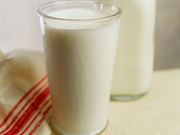Men in Hawaii who drank more milk showed brain changes, but more research needed to confirm link
TUESDAY, Jan. 5, 2016 (HealthDay News) — Men who drank milk that may have been tainted with a pesticide when they were young might be more likely to develop signs of Parkinson’s disease, according to a study published online Dec. 9 in Neurology.
The study included 449 Japanese-American men living in Hawaii. Their average age was 54. All of the men took part in an aging study and were followed for more than 30 years. After their deaths, autopsies were conducted. Brain residues of heptachlor epoxide, an organochlorine pesticide found at excessively high levels in the milk supply in Hawaii in the early 1980s, were also measured.
The researchers found that, compared to nonsmokers who drank less than two cups of milk a day, nonsmokers who drank more than two cups of milk a day had 41.5 percent lower neuron density in the substantia nigra area of the brain. There was no link between milk consumption and brain cell loss in smokers. The researchers also found heptachlor epoxide residue in 90 percent of study participants who drank the most milk, compared to 63.4 percent of those who drank no milk.
“There are several possible explanations for the association, including chance,” Honglei Chen, M.D., Ph.D., from the U.S. National Institute of Environmental Health Sciences, wrote in an accompanying journal editorial. “Also, milk consumption was measured only once at the start of the study, and we have to assume that this measurement represented participants’ dietary habits over time.”
Copyright © 2016 HealthDay. All rights reserved.








